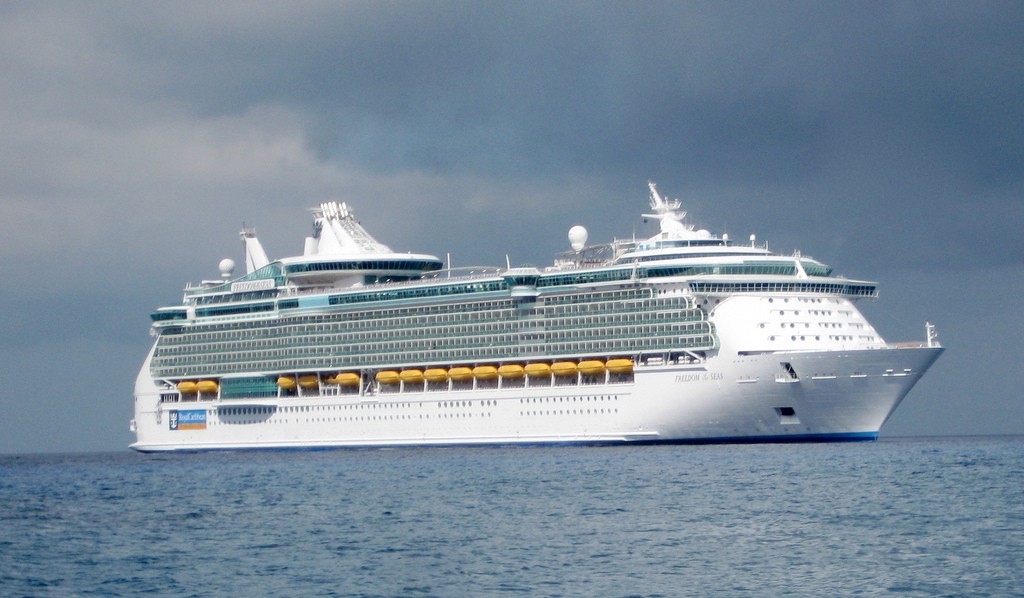Is Living on a Cruise Ship Less Expensive Than Living on Land?
In some situations, yes.

I know I’ve mentioned it a few times already, but next week I’m going to be on the JoCo Cruise, sailing out of sunny San Diego and featuring special guests such as N.K. Jemisin and Rebecca Sugar. This’ll be my sixth cruise, which is a little hard to fathom, and while I understand that there are many problematic elements of the cruise ship experience—the environmental footprint, for starters, and the workplace/labor issues—there’s also a lot to be said for… no, I can’t even say it. I can’t even write “yeah, spending a week on a boat with no internet, where I don’t have to cook or clean up after myself and where I can run into a good friend every time I walk down the Promenade is great” without sounding like Privilege McPrivilegedFace.
Also, living on a cruise ship sounds a lot like growing up in a small town in the 1990s. (Which I did.)
But the point of this is that I want to share a recent NYT article in which we learn that living on a cruise ship full-time can be less expensive than living on land—and since I just mentioned the 1990s, I should let you know that I mentally processed that last statement in the voice of Sebastian the Crab.
Calling a Cruise Ship Home: See the World, Then See It Again
Mario Salcedo, aka “Super Mario,” lives on—and runs his online investment management business from—cruise ships. He spoke to the NYT while on Royal Caribbean’s Freedom of the Seas, which is a ship on which I have sailed twice. (I wonder if we’ve ever passed each other on the Promenade.)
His standard regimen involves five hours of work in the morning, followed by activities such as dancing, seeing shows and scuba diving. While he still maintains a condominium in Miami, he spends very little time there: perhaps a few hours each week when his ship is in port, to check up on his property and enjoy breakfast at McDonald’s.
McDonalds?! Is the Johnny Rockets on Deck Twelve not enough?
Salcedo spends $70,000 per year to live the full-time cruise life, which sounds like a lot of money but includes not only living space but also meals, all of his utility costs, and cleaning services. (Some amenities, like laundry, cost extra.) He’s spending $5,800 per month on the major costs of living, which is comparable to what one might spend on rent+food+utilities+housecleaning services, not to mention additional daily living costs that a person living on a cruise ship doesn’t have, like transportation or gas. Plus he’s getting world-class entertainment as part of the package, from Broadway-style shows to recently-released movies.
So yeah, in some situations and at some income levels, living on a cruise ship might be less expensive than living on land—especially if you take enough cruises to rack up all of those membership rewards, as Salcedo has done.
Cruise ships, meanwhile, have figured this out—and they’re ready to jack up the prices.
None of this is lost on the cruise lines, which are responding with products targeting retirees. Last November, Oceania Cruises introduced “Snowbird in Residence” Caribbean voyages of up to 116 days, scheduled for December 2017 and January 2018.
Eyeing a wealthy portion within that demographic, Crystal Cruises will introduce the first of three planned vessels in 2022 that will include 48 privately-leased “Crystal Residence” apartments, including a 10,000-square-foot, upper-deck luxury accommodation with a 270 degree view, the largest “interior living area for a luxury vessel on the high seas,” according to the cruise line.
If there’s a JoCo Cruise in 2022, I’d love for us to charter a Crystal Cruises ship with a Crystal Residence resident inside. That person would walk out onto the Promenade on Cosplay Day and either re-evaluate their life choices or go back into their apartment and put on their Batman costume. (I feel like the “I want to live on a cruise ship” demographic might overlap with the “lifehacking nerd” demographic. Just a little.)
Would you want to live on a cruise ship, if you knew it was less expensive than living on land? If your first response is “but you said cruise ships have issues,” remember that we’ve got just as many environmental and labor issues off the ocean as on. So… would you? I’d be tempted, honestly. If the cost of living on land gets too high, I’d seriously consider taking to the sea.
Support The Billfold
The Billfold continues to exist thanks to support from our readers. Help us continue to do our work by making a monthly pledge on Patreon or a one-time-only contribution through PayPal.
Comments